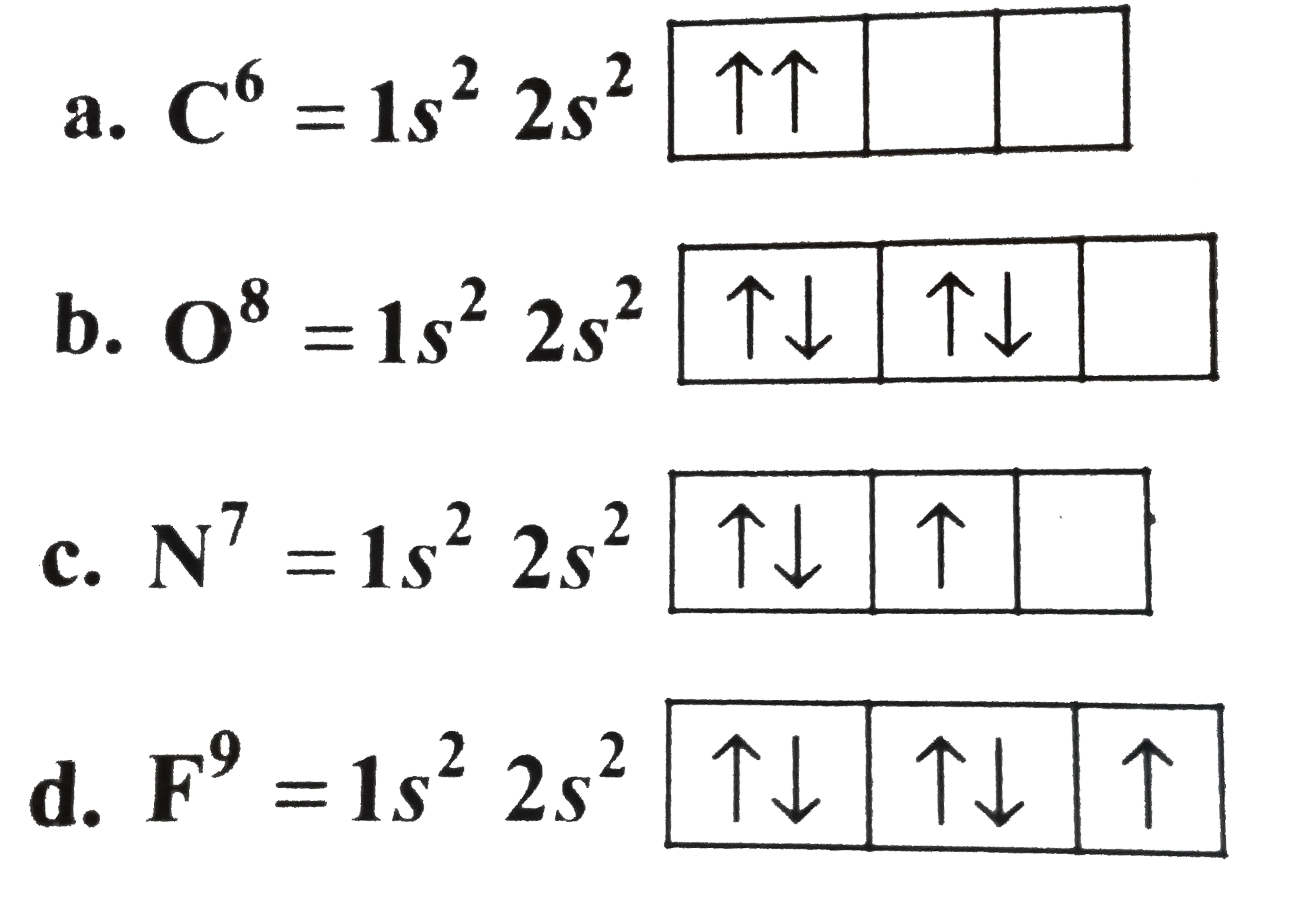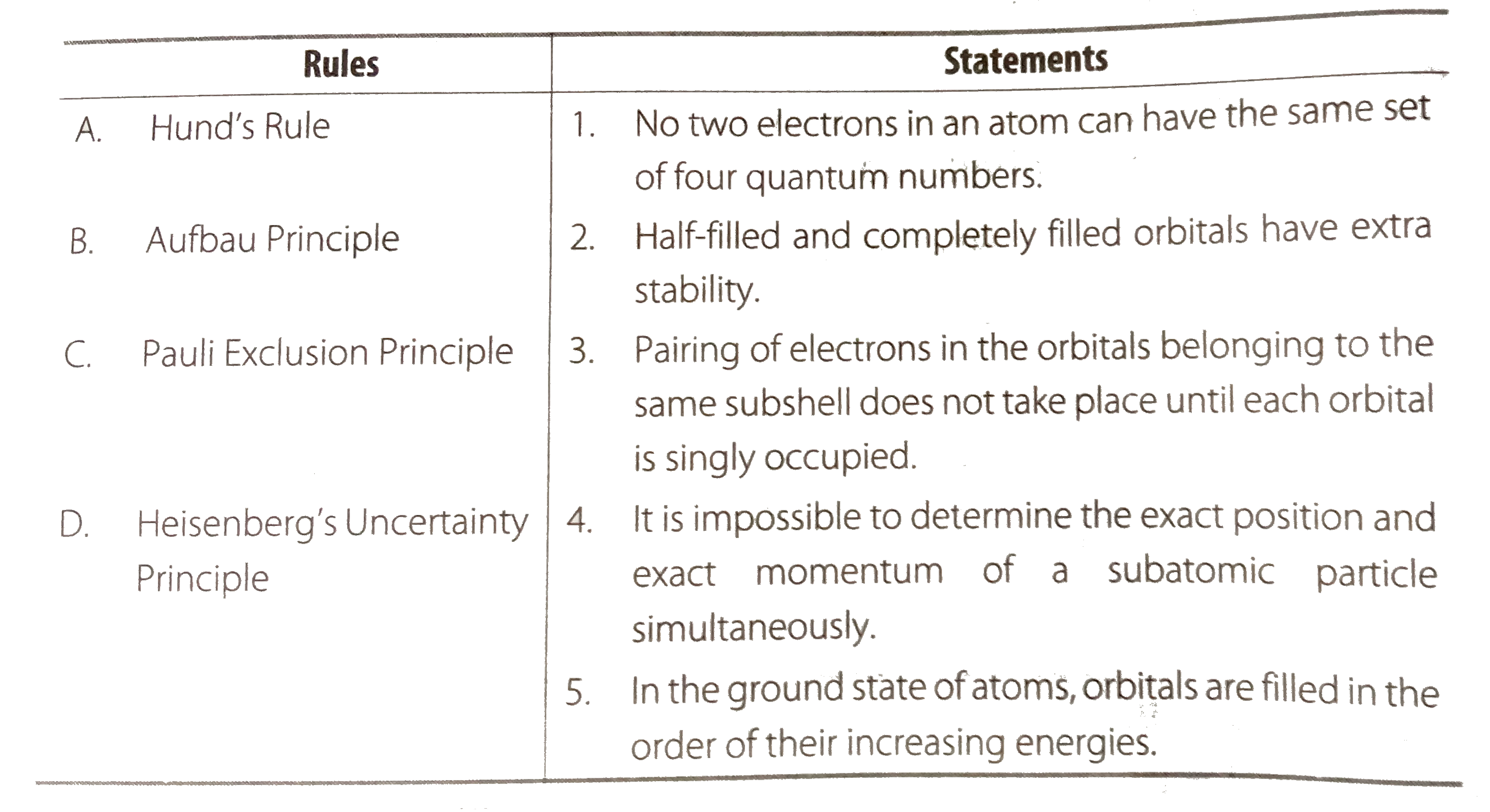The oxidation number of an element in a compound is evaluated on the basis of certain rules. Which of the following rules is not correct in this respect ?
The oxidation number of hydrogen is always +1.
The algebraic sum of all the oxidation numbers in a compound is zero.
An element in the free or the uncombined state bears oxidation number zero.
In all its compounds, the oxidation number of fluorine is -1.
The correct Answer is:A
To determine which rule regarding oxidation numbers is incorrect, we will evaluate each option provided in the question based on the established rules of oxidation states.
1. Evaluate the first option: "The oxidation number of hydrogen is always +1."
- This statement is not correct. Hydrogen can have different oxidation states:
- In metal hydrides (e.g., NaH), hydrogen has an oxidation number of -1.
- In molecular hydrogen (H₂), it has an oxidation number of 0.
- In compounds like HCl, it has an oxidation number of +1.
- Therefore, this rule is incorrect.
2. Evaluate the second option: "The algebraic sum of all the oxidation numbers in a compound is 0."
- This statement is correct. In a neutral compound, the sum of the oxidation states of all atoms must equal zero. For example:
- In NaCl: Na is +1 and Cl is -1, so the sum is 0.
- In NH₃: N is -3 and each H is +1 (total +3), so the sum is also 0.
3. Evaluate the third option: "The element in free state has an oxidation number of 0."
- This statement is correct. Elements in their free or uncombined state (e.g., O₂, N₂, H₂, Cl₂) have an oxidation number of 0.
4. Evaluate the fourth option: "The oxidation number of fluorine is always -1."
- This statement is correct. Fluorine is the most electronegative element and always has an oxidation number of -1 in its compounds.
Conclusion:
After evaluating all options, the only incorrect statement is the first one: "The oxidation number of hydrogen is always +1."
Thus, the answer is A.
- This statement is not correct. Hydrogen can have different oxidation states:
- In metal hydrides (e.g., NaH), hydrogen has an oxidation number of -1.
- In molecular hydrogen (H₂), it has an oxidation number of 0.
- In compounds like HCl, it has an oxidation number of +1.
- Therefore, this rule is incorrect.
- This statement is correct. In a neutral compound, the sum of the oxidation states of all atoms must equal zero. For example:
- In NaCl: Na is +1 and Cl is -1, so the sum is 0.
- In NH₃: N is -3 and each H is +1 (total +3), so the sum is also 0.
- This statement is correct. Elements in their free or uncombined state (e.g., O₂, N₂, H₂, Cl₂) have an oxidation number of 0.
- This statement is correct. Fluorine is the most electronegative element and always has an oxidation number of -1 in its compounds.
After evaluating all options, the only incorrect statement is the first one: "The oxidation number of hydrogen is always +1."
Topper's Solved these Questions
- REDOX REACTIONSBOOK - NCERT FINGERTPS ENGLISHCHAPTER - REDOX REACTIONSEXERCISE - ASSERTION & REASON
15 Videos
- REDOX REACTIONSBOOK - NCERT FINGERTPS ENGLISHCHAPTER - REDOX REACTIONSEXERCISE - Redox Reactions In Terms Of Electron Transfer Reactions
5 Videos
- REDOX REACTIONSBOOK - NCERT FINGERTPS ENGLISHCHAPTER - REDOX REACTIONSEXERCISE - HIGHER ORDER THINKING SKILLS
9 Videos
- PRACTICE PAPER 3BOOK - NCERT FINGERTPS ENGLISHCHAPTER - PRACTICE PAPER 3EXERCISE - Practice Paper 3
46 Videos
- SOME BASIC CONCEPTS OF CHEMISTRY BOOK - NCERT FINGERTPS ENGLISHCHAPTER - SOME BASIC CONCEPTS OF CHEMISTRY EXERCISE - NCERT Exemplar
11 Videos
Similar Questions
Knowledge Check
Which of the following rules is not related to weight' training?
AConcentrating on the muscles during exercise.BMaintaining a good rhythm during exercise.CResting between the sets for 30 to 60 seconds.DNot warming up and stretching before the workouts.Which one of the following violates octet rule ?
ANH3BCH4CCO2DNOWhich one of the following exceeds octet rule ?
AThe incomplete octet of central atomBAn odd number of electrons on central atomCExpanded octed of the central atomDAll of these


